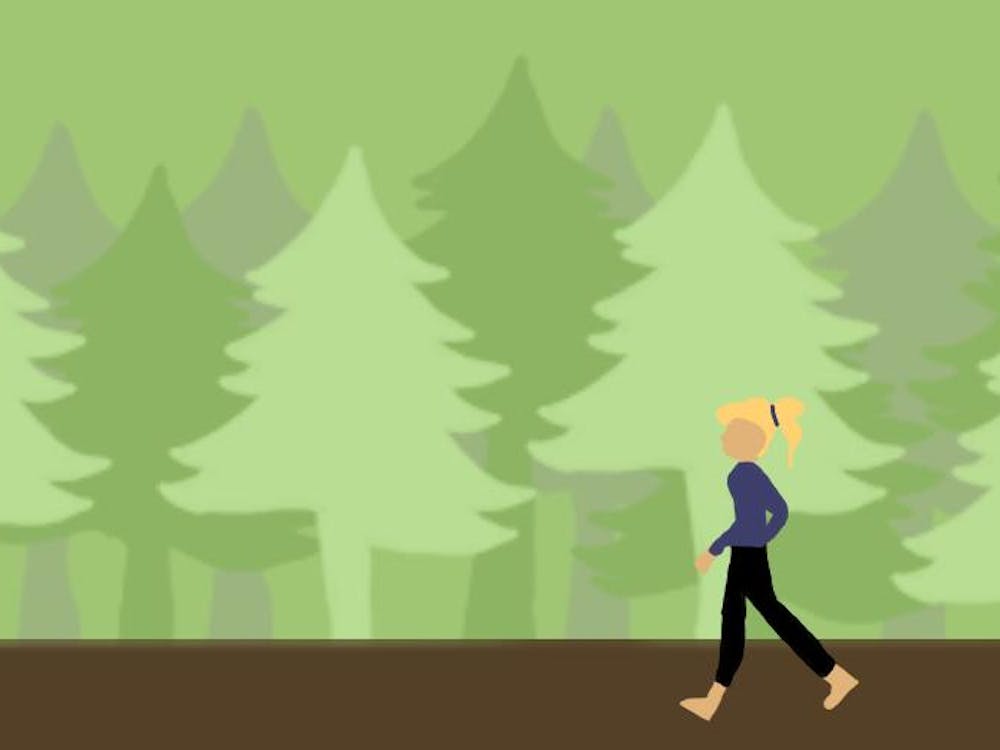D r. Donald R. Erbschloe remembers leaving the University like any other student. He had a bachelor's in math and physics, a high admiration for the honor code and respect for professors that impacted and inspired him.
But when he returned to Grounds April 3 to speak to Air Force ROTC cadets, Erbschloe came with an extensive education and experience from his Air Force career.
Major George Dowdy, University commandant of cadets, invited Erbschloe to speak to the cadets because his career after leaving the University has taken him from the battlefield to the office, making him a valuable resource for cadets, especially those majoring in the technical fields.
Erbschloe is the current chief scientist, Air Mobility Command, Scott Air Force Base. He said his position, through which he offers scientific counsel, technical advice and guidance throughout the command, was the combined vision of the former and current chief scientists of the Air Force.
"They realized it would really be useful to put somebody at a fairly high level in the major commands who can talk to the war fighters and the operators," he said.
Erbschloe is also part of the overall effort of the AMC to develop ways of transporting the wounded troops faster and thus decreasing fatalities.
"In Vietnam, it took about 30 days to get from a field hospital back to the States," he said, noting that today it usually takes three days or less.
The AMC is also working to deliver cargo with more precision through the Joint Precision Airdrop System. JPADS involves steerable parachutes with GPS systems that allow planes to drop cargo closer to their intended targets.
"It's going to transform the way we do aerial delivery," Erbschloe said.
Erbschloe's eventful career is dotted with a few defining moments. There were life-threatening situations while flying, such as when his aircraft was struck by lightning and the whole crew pulled together to survive. There was a bad earthquake in Italy after which Erbschloe flew equipment and supplies to the area. There was Sept. 11 when he was at the gym in the Pentagon watching the smoldering World Trade Center on CNN. He said he was so far underground that he did not feel the impact of the plane when it hit the Pentagon, but the magnitude of the incident was clear once he went outside and saw the clouds of smoke.
"I know there's only one thing that burns like that, and that's jet fuel," he said.
His memorable experiences, however, are not limited to his career. As a 1976 College graduate, Erbschloe also reflected on his time at the University.
When Erbschloe came to the University, he was not sure in which field he wanted to concentrate: physics, pre-law or psychology. He dabbled in a little of all three his first year but decided to stick with physics.
"There was a certain amount of certainty and surety that was in physics that was very appealing to me," he said.
Frank Hereford, who would later become University president, was one of the professors whose intriguing lectures helped develop Erbschloe's interest in physics.
But Erbschloe learned more than just facts and figures during his time at the University. He also learned "how to learn," which helped him when he went on to study at Oxford, where he was expected to teach himself.
Erbschloe also took advantage of opportunities outside the classroom. He said he loved to see the great speakers who visited the University during his time on Grounds.
"Should I study for a statistical mechanics test that I have tomorrow or should I go see Vice President Spiro Agnew talk?" he said. "Well, I would always opt for the talk, so perhaps my grades suffered a little bit while I was here, but the broader education that I got, I wouldn't trade for anything in the world."
Erbschloe said there are some differences between the University he went to and the University of today, notably, the political environment.
When he attended the University, the Vietnam War was winding down, but it still affected University students.
"This was not one of those schools where they had riots like Berkeley or some of the other schools, but there was a tension there," he said.
Yet this tension did not deter him as he said he was very proud to be an ROTC cadet.
Erbschloe's initial interest in the Air Force was something that began at home.
"My father was an Air Force officer," he said. "It's the life that I knew."
He also said there was a financial aspect to his decision to become personally involved with the Air Force, as ROTC provided Erbschloe with a scholarship.
His fulfilling experiences and growth from his time at the University put Erbschloe in a position to offer advice to current University students.
Third-year College student Kelly McCormick, an Air Force ROTC cadet, said he thought Erbschloe's recollections and advice -- especially the information about what students can expect as future officers -- was informative and relevant.
Erbschloe urged students to "cherish your time here" and "develop strong ties ... because these people are going to be very important to you later in life."
He also said to take advantages of the opportunities the University supplies, including plays, concerts and speakers, because they "will be the things that you look back on and remember with fondness and often hilarity and enjoyment."






